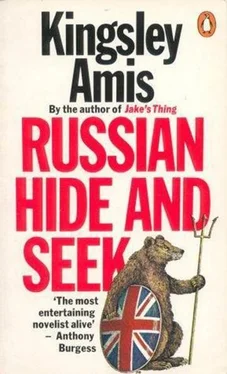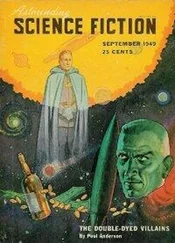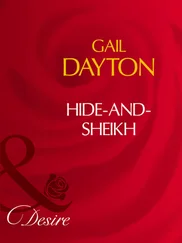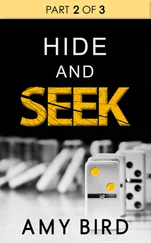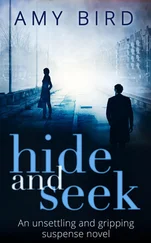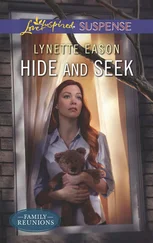‘Of course I approve! My little sister and my old friend Theodore – a new friend who seems like an old friend. I’ve thought of something. Would it appeal to you to come out and dine at my mess one night?’ When he saw Theodore hesitate, he went on, ‘I can have you fetched and taken back, if that’s a problem.’
‘Oh… thank you, for the invitation too – I didn’t know civilians were admitted to guest-nights.’
‘The regimental mess is pretty well sacrosanct except for an occasional dignitary from London or Moscow, but in the week we eat at the squadron, just half a dozen of us. It might amuse you, the food’s not bad and afterwards we can slip away on our own; that’s more or less expected. Now next week’s orders aren’t out yet – would tomorrow night be too soon? I’ll get in touch with you at the Commission about the details.’
Soon afterwards Nina and Elizabeth, the latter now in possession of all the relevant facts about the new frocks, returned to the room. Both turned looks of unfocussed but keen suspicion on the two young men. Nina said that they should all return to the drawing-room.
‘I should be going altogether,’ said Theodore.
‘Not before you’ve played us something,’ said Nina.
‘Dear God, I thought I’d got out of that.’
‘People don’t get out of things with Nina,’ said her brother.
‘It’s a family characteristic,’ said Elizabeth.
When, at the dinner-table an hour earlier, Mrs Tabidze had called for the brandy-decanter, Alexander had felt very much inclined to pour the whole of its contents over her, with the option of going on to set light to them. It was not that he resented her calling him a young whippersnapper (she was far too old and ugly for him to care one way or the other what she thought of him); the feeling aroused in him, though violent, was much more impersonal than that. The moment came back to him now because the last piece of dialogue had induced the same hostility, even though he had contributed to it himself. What was it that he found so distasteful? Something to do with style, something to do with intention, something to do with being taken outside life and into… a funny story? A parlour game? But why should that matter? For almost the first time in his life, Alexander sincerely wished he knew more and could think better.
In the drawing-room the card-game had just ended, with Korotchenko and Mrs Tabidze dividing the spoils with winnings of about £10,000 each, enough for a bottle of good-quality spirits and a packet of five cigarettes. Much to Alexander’s surprise, his mother and Mrs Korotchenko were in animated conversation; perhaps his extempore patter about shyness in a company of any size had happened to come somewhere near the mark. Nina clapped her hands for silence and announced that Mr Markov would play and sing some of the English songs he had come across in the course of his researches for the Cultural Commission.
Theodore duly offered half a dozen pieces, all short, under two minutes. He showed himself to be possessed of enough, or more than enough, skill and imagination for what he saw as the deceptively simple keyboard writing and also of a pleasant light baritone voice. Quite by chance, the piano had stayed free of damp and so was not grotesquely out of tune. Of those who noticed that it was not in tune (both Korotchenkos being tone-deaf), some, like Nina, thought this was pleasingly congruent with the outlandish material, while others, like Elizabeth, supposed Theodore to be somehow distorting the pitch on purpose for greater effect. All the songs were well received but by common consent the last of the set was best. Although the structure again was simple, two related strains each repeated once, Theodore brought out a blend of vivacity and melancholy in the music that proved, to this Russian audience, recognisable even if unfamiliarly expressed. Cries of approval as well as handclaps followed the final triumphant chord.
‘Most enjoyable,’ said Mrs Tabidze. ‘But could you explain it a little, Mr Markov? I’m afraid my English is far from what it should be. What does it mean, locked ‘em in the Old Kent Road?’
‘Actually it’s knocked ‘em, ma’am, struck them, hit them. The words are obscure, they’re largely slang, or more accurately argot. My theory… but you don’t want me to expound my theory at this time of night.’
His hearers assured him that they did.
‘The composer and lyric-writer was a certain Albert Chevalier. Now the French community in London was never very large; it was mostly confined to the catering trade. But it seems to have been cohesive, never assimilated by the traditionally xenophobic English. I take this song to be one of defiance, an assertion of French pride and independence in the heart of a foreign land, in the old, historic, quintessentially English road to Kent.’
‘But it’s an English song,’ said Elizabeth.
‘It became one. The English always imported or naturalised large parts of their culture, right to the end. During the Patriotic War of 1941-5, when they and the Hitlerites showed great hostility towards one another for a time, a hostility that as you know erupted more than once into armed actions like the bombing of the London docks and the Dieppe raid, the English translated and took over a German song called “Lilli Helene”. Musically speaking, too, the song I’ve just performed could never have been an English product. Not… not sufficiently direct.’
‘Fascinating,’ said Nina.
When the guests left, Alexander looked in vain for some signal from Mrs Korotchenko to confirm their arrangement for the following Tuesday, but he already knew enough about women not to be cast down by this omission of hers. He was tired and heavy-eyed and yet had no desire for sleep, or so he told himself. Should he have a last glass of wine? Unable to think of any arguments for or against the proposition he nevertheless returned to the drawing-room, which had the desolate look of all newly-emptied human resorts. While he was gazing inattentively at an opened bottle his father came in.
‘Ah, there you are, my boy. Are you away early tomorrow?’
‘Not especially, papa.
‘Commissioner Mets is coming to breakfast to discuss general policy. I though you might care to turn up as well.’
‘With anything particular in mind?’
‘The Commissioner might be interested to hear your views; you know some of the problems better than I do. It was just a thought.’
‘A very nice one. I’d love to come.’
‘Excellent. Eight o’clock. Try not to be late. Oh -Alexander…’
‘Yes, papa?’
‘You… you and Mrs Korotchenko and your turn in the gardens. I take it you, you DID, eh?’
Alexander had had fully ten seconds’ notice of a question on these lines, long enough to think things out as follows. There could be no point in shocking his father, who all the same appeared so far from shocked by the idea that it would be strange if he were to be much shocked by the fact, though on previous form, that of a sort of liberal puritan, some shock, unthickened with reproaches, was to be expected. That left the scales about level; what tipped them was the thought that it was too late at night for another elaborate exercise in dissimulation, especially for such trivial stakes. And there might well come a time when paternal possession of the fact in mind would be vital. Promptly enough to stand to win a couple of extra marks for supposed fearless honesty, he said, ‘Yes, I did.’
Petrovsky gave a great laugh. ‘I knew it! You young devil!’
‘How did you know, papa?’
‘Because I know you, that’s enough. Fancy that! I tried to get old Tabidze to take a bet, but he wouldn’t.’
‘What did you say to him? How did you put it?’
Читать дальше
